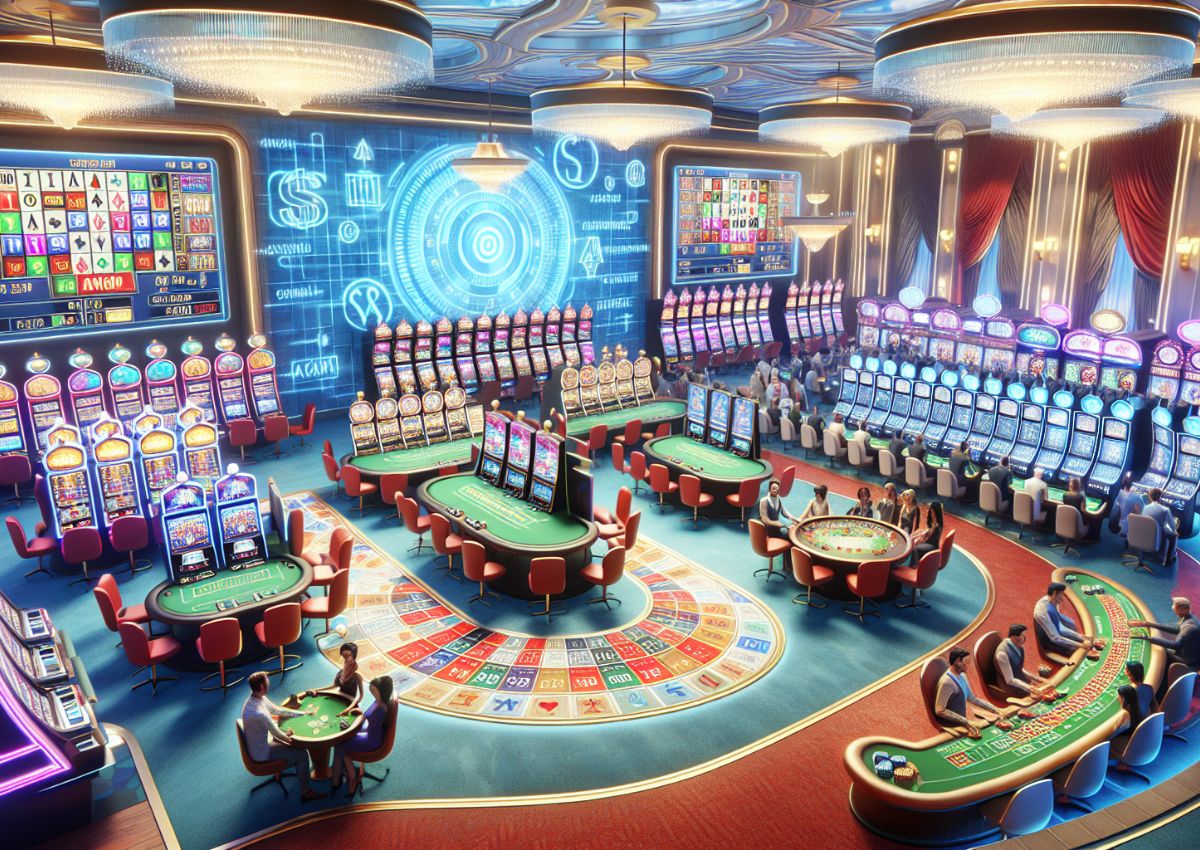
Casino entertainment have long been a fascinating form of entertainment, drawing countless of players from diverse cultures around the globe. From the opulent casinos of Vegas to the bustling gambling halls of Macau, these games serve as a link that brings together people across different backgrounds. The allure of fortune, strategy, and gambling entices not only those hoping to gamble for profit but also those in search of a feeling of belonging.
The cultural impact of casino games extends well beyond the gaming floor. They often embody the cultural standards and principles of the cultures in which they prosper. Games such as poker, pontoon, and roulette have integrated into the mosaic of cultural phenomena, influencing everything from movies to clothing. As we explore this fascinating intersection of chance and culture, we can comprehend better how these games shape and are affected by the environment surrounding us.
Chronological Development of Gaming Activities
The roots of gambling games can be followed back to historical cultures, where betting in multiple forms was extensively practiced. In China, around two thousand three hundred years before Christ, a form of gambling known as Keno was well-known, while in historic Rome, soldiers would often bet on the results of their games. The concept of using luck for fun and profit progressed over the centuries, leading to the formation of more formal activities. By the late Middle Ages, betting houses began to appear in European nations, notably in Italy, which presented early forms of popular activities still played today.
As gambling expanded recognition in Europe, the 17th and 18th centuries saw the rise of gambling establishments as specialized establishments for betting. The initial official gambling house, the Ridotto, was founded in Venice in 1638, featuring activities like Baccarat and Faro games. This era marked a significant shifting point, as gaming venues commenced to draw not just the wealthy but also the growing middle-tier society. The refinement of games evolved, leading to the creation of new rules and modifications that enriched the experience of players.
In the 19th century, the industrial age and changes in social standards further changed the landscape of casino games. The launch of roulette and new slot machines pulled in a more diverse clientele, and gaming houses became seen as legitimate forms of recreation. This period witnessed the globalization of casino activities, as casinos expanded from the continent to the Americas, culminating in the establishment of the iconic Las Vegas Strip in the 1900s. 789WIN The development of gambling activities has continued into the present day, incorporating technology and online services, allowing them open to a worldwide market.
# Cultural Importance in Diverse Cultures
Casino games have deep-rooted cultural and social importance in many societies around the world. Places like Las Vegas, the very essence of the city is woven around casinos, where playing is not just a hobby but a fundamental aspect of social engagement and community interaction. The bright lights and vibrant atmosphere attract countless individuals, showcasing how games of chance can impact local financial landscapes and cultural uniqueness. This environment transforms the notion of leisure into an engaging encounter that influences apparel, sound, and even film.
Conversely, some societies approach betting with an air of caution, considering it through the lens of morality and customs. For example, in many Asian societies, games like Mahjong and Pai Gow are full of history and have significant social meanings. These games are often played during gatherings and occasions, fostering collective connections and reinforcing kinship ties. The act of playing these games goes past mere amusement, reflecting ethics such as deference to seniors and the value of shared enjoyment.
At the same time, in European countries such as the principality of Monaco and Italy, games of chance serve as symbols of luxury and sophistication. The elegant atmosphere of these venues attracts both travelers and locals, maintaining a sense of prestige and exclusivity. The art of Texas Hold’em and the tactical components of games like baccarat are appreciated, molding community relationships and creating an appeal that enthralls a varied audience. This highlights how gambling can both reflect and mold societal views towards hazard, reward, and relationship building.
Economic Impact and Tourism
Casino games play a crucial role in the financial context of many areas, particularly those that rely heavily on tourism. The revenue generated from gambling establishments fuels local financial systems, creating jobs not only within the casinos themselves but also in related sectors such as hospitality, dining, and recreation. This influx of tourists, drawn by the allure of gambling and the overall gaming environment, stimulates expenditure across multiple local enterprises, contributing to the economic health of the area.
The existence of casinos often leads to the construction of facilities, including lodging, public transit, and recreational facilities. These improvements are essential in enhancing the overall tourist experience, making destinations more attractive to tourists. Additionally, many casinos contribute in local communities through support of events and charitable activities, further integrating themselves into the social fabric of the locality. Such contribution not only supports economic growth but also fosters a positive reputation of the gambling sector.
In addition, the global popularity of casino games drives tourism competition, with locations vying to attract gamblers from across the globe. Iconic locations like Las Vegas and Macau have become identifiable with casino culture, drawing millions annually. This advantage encourages innovation and diversification within the gaming industry, influencing trends in leisure and accommodation that resonate beyond their borders. The ripple effects of this visitor influx extend wide, impacting local economies and cultural interactions on a global scale.